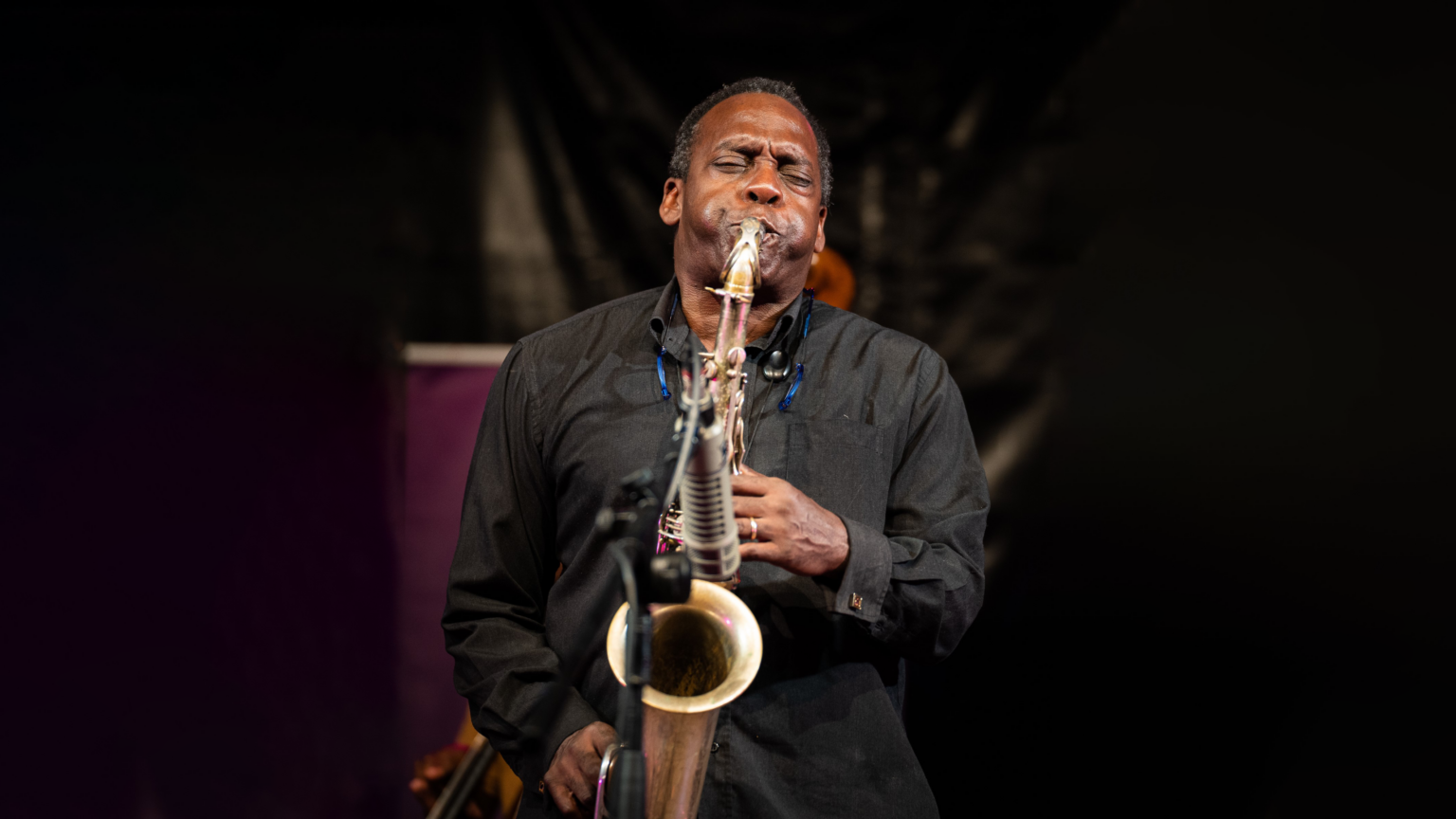
David Murray Q &A
Performers
Repertoire
Program Notes
Jazz saxophone great David Murray will be featured in a Q & A with Global Jazz Studies faculty members Steven Loza and Salim Washington.
Since he arrived in NY in 1975, David Murray established himself as one of the prominent saxophone players and leaders of jazz. He has released over 200 albums under his own name, working with the likes of Max Roach, Randy Weston, Pharoah Sanders, McCoy Tyner, Taj Mahal, Mal Waldron, Amiri Baraka, Jerry Garcia, Doudou N’daye Rose, Cassandra Wilson, Jason Moran, Macy Gray, Omara Portuando, Saul Williams, Vijay Iyer, Quest Love, Black Thought, and Gregory Porter to name a few. He is also a founding member of the groundbreaking World Saxophone Quartet which toured and recorded for 40 years.
As well as being a well-known bandleader, he is a noteworthy composer and arranger providing memorable melodies and harmonies. His approach to improvisation is instantly recognizable. Even in its freest flights, he acknowledges the gravity of a tradition he honors more than most, combining all the influences he grew out of: gospel, jazz, free/avant-garde jazz, rhythm’n blues, R&B and, in his associations with writers, poetry. The great Cecil Taylor compared him to his greatest predecessors who had signature sounds: “You stick your ear in the door, you know it’s David!”
David Murray goes down as a worthy successor for some of the biggest names in jazz, and he is now contributing to the rise of many young talents acclaimed by the critics. His new quartet album will be released in May 2024: Luke Stewart on bass, Marta Sanchez on the piano, and Russell Carter on drums!
“David Murray, the master saxophonist who has reconciled the whole history of jazz tenor, from swing to free, during a wildly prolific career.” NYTimes
“Several of his recordings are among the benchmark achievements in the postmodern era and others attest to a consistency that is rare in any era […] No musician personifies better than David Murray the dilemma of reconciling jazz’s family values and the claims of autonomy.” Gary Giddins